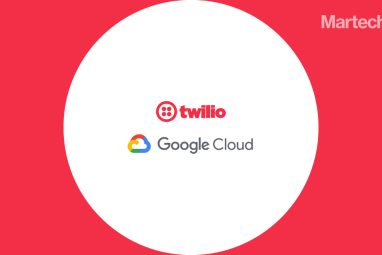Do Consumers Trust Social Media Influencers?
SlickText survey reveals importance of legitimate influencer reviews for e-commerce, plus relevance of preferred posting and channel cadence. As businesses adopt digital marketing strategies, social and influencer marketing have become more integral to their multichannel approach. Now influencers fill people’s social feeds as brands work to capitalise on this marketing trend. A new survey from […]
Topics

SlickText survey reveals importance of legitimate influencer reviews for e-commerce, plus relevance of preferred posting and channel cadence.
As businesses adopt digital marketing strategies, social and influencer marketing have become more integral to their multichannel approach. Now influencers fill people’s social feeds as brands work to capitalise on this marketing trend. A new survey from text communications company SlickText explores consumer preferences on influencer communications and content.
While an influencer-first strategy has the potential to generate significant ROI, this approach has its own set of barriers. Marketers must hone brand and product awareness and demand through meaningful influencer-consumer conversations in trusted channels: text messaging and social media.
In their survey, Do Consumers Trust Social Media Influencers? Here’s What Statistics Show, they inform brands, marketers and influencers about social media’s volatile nature and offer recommendations on how best to optimise consumer trust. The survey examines influencer reviews’ influences on e-commerce, trust consumers place in the influencers they follow, preferred posting, channel cadence and more.
The report separated responses by age and gender, showcasing the generational divide in influencer preferences and the differences between the genders’ purchase decisions.
Also Read: How do Brands Look at Social Media?
Key takeaways from over 1,000 consumers aged 18 to 54+ include:
- The real deal: Of the Gen Z respondents, 31.69 per cent named Instagram as the platform with the most genuine influencers, and 28.67 per cent identified TikTok. Thirty-one percent of Boomers said Facebook. One-third of respondents said an excess of sponsored posts diminishes their trust in influencers.
- Owning the conversation: Nearly half of Gen Z respondents (45.07 per cent) prefer text messaging for communicating with an influencer outside of social media.

- Influence purchase decisions with reviews: Over one-third of respondents (38 per cent) said reviews offer the most helpful social media content — and 52 per cent of online shoppers conducting research before buying start by reading online reviews. To win their trust, 34 per cent of consumers expect unbiased reviews.
Gen Z women are a notable exception to this trend, with 23 per cent ranking how-tos as the most valuable, followed by motivational posts — not reviews. But nearly 40 per cent of this demographic say a brand’s most effective way to win their trust is through direct interaction from the influencers. - The more the merrier: One out of three respondents said they would prefer to see content from an influencer they follow several times per day.
- Value is driving sales: Influencers able to successfully articulate and promote value inspire nearly 40 per cent of survey respondents to make the purchase because they feel they “need” the product.

“Social and influencer marketing has grown exponentially over the past few years, because brands continue investing more and more in this strategy,” said Meg Scales, CMO of SlickText. “However, it’s critical brands don’t lose consumer trust by over-promoting products and creating unauthentic sponsored content. Consumers expect real, valuable reviews in channels they trust, like text messaging Influencer marketing truly impacts purchase decisions when done properly.”
Because consumers are placing an increased importance on reviews when online shopping, content from social media influencers is becoming more useful for businesses looking to influence purchase decisions online. Yet the relationship between influencers and their audiences is only as valuable as the amount of trust consumers have for the influencers they follow. There are many factors that could impact this trust, everything from the platform itself to how often influencers are posting. While an informed strategy is needed to optimise trust, marketers should also be keenly aware of the volatile nature of social media and be constantly working to own their lists so they can adjust to rapid changes.





